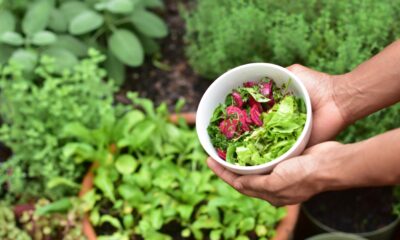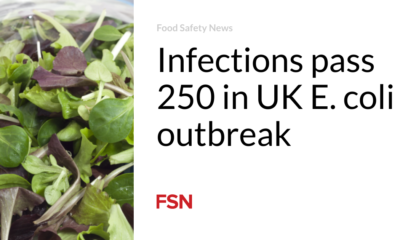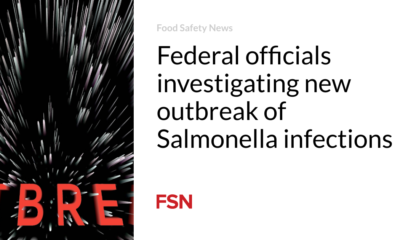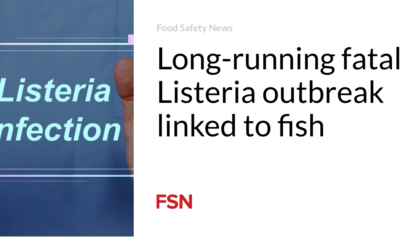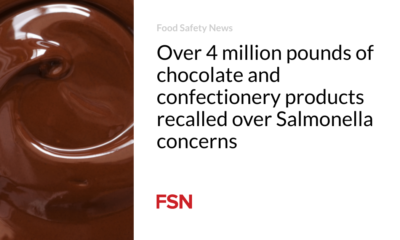Food
Vegetable mix linked to largest outbreak of Finnish Salmonella ever
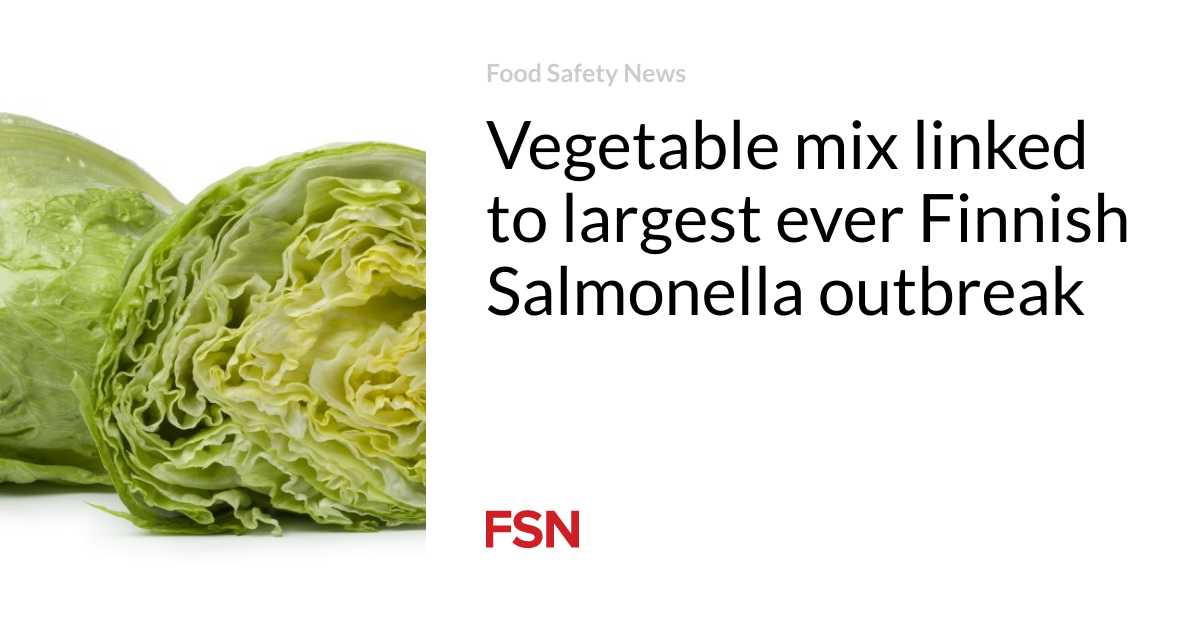
Scientists have shared details of a major investigation into the Salmonella outbreak in Finland, including cucumbers and iceberg lettuce served in educational institutions.
More than 700 people became ill during the 2021 Salmonella Typhimurium outbreak at a childcare lunch. Similar Salmonella Typhimurium was found in patients and in a vegetable mix with iceberg lettuce, cucumber and peas served for lunch.
It was the largest Salmonella Typhimurium outbreak in Europe since 2004 and the largest Salmonella outbreak ever reported in Finland, according to the Zoonoses and public health study.
In June 2021, there was a sudden increase in the number of gastroenteritis patients in Central Finland. The outbreak was reported to the Finnish Institute for Health and Welfare (THL).
The majority of patients had fever, nausea, abdominal pain and diarrhea, and many of them had bloody stools. Between June 19 and July 5, 239 patients with gastroenteritis sought treatment. Their average age was 4 years, ranging from 1 to 61 years old.
Role of the central kitchen
The healthcare industry has faced many challenges during the outbreak. This included patients with gastrointestinal symptoms in a room not intended for patients with infectious diseases, especially children. Cleaning facilities were limited and infection control measures due to the COVID-19 pandemic slowed the process. In addition, the holiday period caused a shortage of medical and nursing staff.
The central kitchen supplied food to 61 daycare centers. Based on the interviews with sick people and daycare center managers, patients visited 59 daycare centers that received food from the same central kitchen. Investigation revealed that the lunch or snacks served on June 18 were suspected meals.
620 children and 108 staff reported gastroenteritis to childcare managers. All 15 central kitchen employees were asymptomatic and provided Salmonella-negative stool samples.
THL found a similar Salmonella Typhimurium strain in 35 patients from Central Finland and in three patient samples from other parts of the country between July and November 2021. Since Salmonella Typhimurium strains similar to those in the outbreak were also found elsewhere in Finland, the source was likely in wider distribution, scientists said.
Salmonella was found in the vegetable mix. Patient isolates and three isolates from the vegetable mix were closely related.
Complaints about the quality of lettuce
No abnormalities were found during inspection of the central kitchen. The cucumber was of domestic origin, while the iceberg lettuce was imported from another European country.
Traceback’s investigation showed that the information about the wholesaler’s batch of vegetables was incomplete. The wholesaler had received quality complaints about the iceberg lettuce from the central kitchen. The manufacturer did not test the suspect batch for Salmonella because the production facility had issued a certificate stating that it was negative.
The use of pre-cut iceberg lettuce was suspended in the central kitchen. The kitchen staff was advised to freeze vegetable samples separately in the future. No measures were taken against the wholesaler and manufacturer of iceberg lettuce because the product was no longer on the market or in stock.
Due to quality complaints, the main suspect ingredient was one batch of iceberg lettuce. However, cucumbers could not be excluded. A small batch of cucumbers may have become contaminated during the washing process and spread the contamination to other cucumbers.
“We recommend this to enable thorough microbiological research. Institutional kitchens store food samples separately for internal quality control. Food products should always be tested if Salmonella contamination is suspected in an outbreak. Improving traceability throughout the supply chain is important to enable traceback investigations of fresh vegetables,” researchers said.
(To sign up for a free subscription to Food Safety News, click here.)

